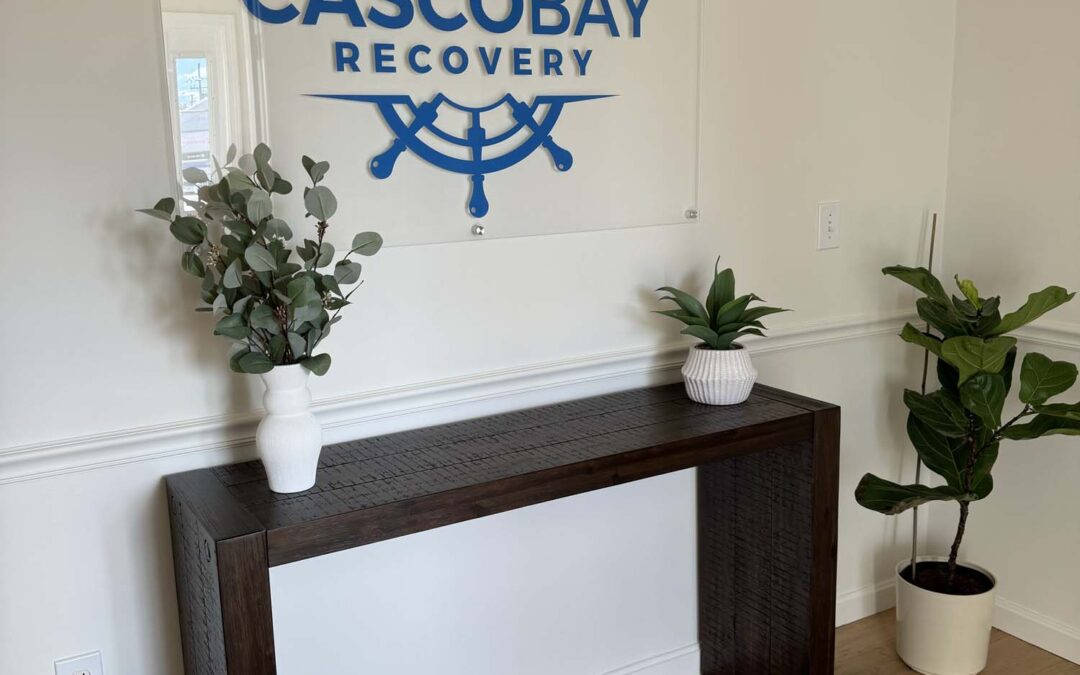Have you ever felt stuck or like you were in a rut? Whether it’s in your professional or personal life—or both—you may have been searching for something to help you get out of it. If that’s the case, then you’ve probably heard of motivational interviewing (MI).
MI is a powerful clinical and therapeutic approach used to help people make changes and develop healthier ways of thinking and acting. It is often utilized by those who suffer from opioid use disorders or various other substances. You might be wondering what the components of such an approach are, so that’s what this blog post will cover.
We’ll explore what MI is, when it is used, what to expect during MI, and how it works. We’ll also look at the core elements of MI. Armed with this information, you’ll be able to better assess if MI is a viable option for reaching your goals. Let’s jump right in and get started!
What is Motivational Interviewing?
Motivational interviewing is a style of counseling that focuses on helping people identify and better understand why they want to make a change in their lives. It’s used primarily by counselors and therapists who want to motivate their clients to create healthy changes in their behaviors.
The motivational interviewing approach was first developed in early 1980. It was introduced by clinical psychologist Stephen Rollnick and social worker William Miller. The idea behind this approach was that people needed to be listened to and encouraged in order to make the changes they wanted to see in their lives.
Since its development, motivational interviewing has become an increasingly popular intervention, with evidence-based research supporting its effectiveness. It has been successfully used in many different settings and situations. MI can be used to help people develop healthier lifestyles, including weight management, smoking cessation, and improved nutrition.
When is Motivational Interviewing Used?

Motivational interviewing (MI) is a therapeutic framework used to help people make behavioral and life changes. It has many applications, including in healthcare, addiction treatment, mental health counseling, criminal justice, and education. MI is often used to help people with substance use disorders or other mental and/or behavioral health problems.
In healthcare, motivational interviewing and counseling can be used to help patients change their bad habits into positive ones. These transitions in their health behaviors may include quitting smoking, exercising more, or eating a healthier diet. In addiction treatment, it can be used to help individuals who are struggling with substance abuse or struggling with addiction.
In mental health counseling, motivational interviewing can be used to help individuals who are struggling with depression, anxiety disorders, or other mental health issues. It can also be used in criminal justice settings to help individuals who have been convicted of crimes make positive changes in their behavior and avoid re-offending.
Motivational interviewing can be used in educational settings to help students who may be struggling with motivation or who may be resistant to change.
How Motivational Interviewing is Used to Treat Substance Use Disorders

Motivational interviewing (MI) is frequently used to help individuals struggling with substance use disorders change their behavior and find immediate solutions to their problems. The clinical and therapeutic approach encourages the patient to explore and resolve any concerns they feel about their addiction, which allows them to create a lifestyle that supports recovery from addiction.
Focusing on Change
MI helps those seeking addiction support focus on creating change. It helps them by identifying the reasons why they want to address the challenges and barriers they face. This reflective approach acknowledges that the individual has the skills, resources, and strengths to overcome any challenges that may come their way during the process of recovery.
Establishing Goals
Furthermore, MI helps establish goals by exploring the pros and cons of various courses of action. It helps individuals identify what drives them while understanding why they get stuck in certain behavioral patterns. It focuses on enhancing self-efficacy, solving problems collaboratively, building consensus on goals, and exploring values-based behaviors.
What to Expect During Motivational Interviewing Counseling
During motivational interviewing counseling, you can expect a person-centered approach that focuses on addressing ambivalence about change. The counselor will help you explore your feelings and find your own motivations. Instead of becoming defensive or argumentative when facing resistance, the therapist will assist in identifying the problem and its solution.
In a normal motivational interviewing counseling session, clients can expect the following:
A Focus on the Client’s Perspective
Motivational interviewing is a client-centered approach that focuses on the client’s perspective, values, and goals. The counselor will be curious about the client’s experiences and will listen non-judgmentally to their concerns.
Open-Ended Questions
The counselor will use open-ended questions to encourage the client to explore their thoughts, feelings, and motivations related to the behavior they are considering changing. These questions can help the client gain insight into their own experiences and identify their own reasons for change.
Reflective Listening
The counselor will reflect back to the client what they are hearing to ensure that they are understanding the client’s perspective accurately. By doing so, clients can feel heard and understood. This can then help build rapport and trust between the client and counselor.
Empathy and Support
The counselor will provide empathy and support to the client throughout the session. This can help the client feel safe and supported as they explore their feelings about the behavior they are considering changing.
A Focus on Client Strengths and Resources
The counselor will help the client identify their strengths and resources and could be able to work with the client to develop a plan for change that leverages these strengths and resources.
How Does Motivational Interviewing Work?
Motivational interviewing is an interactive style of therapy that focuses on eliciting and exploring a person’s motivation for change. This approach utilizes a range of open-ended questions and statements. This helps in directing the discussion and assisting the patient in becoming aware of their inner drive to change.
The method follows four core principles:
Expressing Empathy
Expressing empathy is all about listening attentively, understanding the client’s perspectives, and conveying understanding through verbal and nonverbal cues. The individual must feel that they are being heard and that their emotions are valid before they can come to a place of receptivity to your interventions.
Developing Discrepancy
This step involves helping the person explore the discrepancy between their values or desired outcomes and their current behaviors. Doing this helps them start to consider how they want to move forward.
Rolling with Resistance
Due to fear or ambivalence, people may be resistant to change at times. In an MI session, it is important for the therapist to recognize this resistance without pushing too hard for change too quickly.
Supporting Self-Efficacy
The last core element of MI is supporting self-efficacy. It encourages clients to recognize their current strengths and abilities. It helps them keep pushing forward with their goals when things become difficult along the way. It is important that clients know you believe in them and trust that they can make meaningful changes. This can help them build momentum for recovery when it comes time to take action.
These core elements, in combination, help create an environment where an individual is empowered to make changes at their own pace while considering all options available, resulting in long-term positive changes that are specific to each individual’s needs and values.
What are the Benefits of a Motivational Interview
Motivational interviewing offers numerous benefits:
- ability to enhance decision-making skills
- promote empowerment
- resolve ambivalence about treatment
- discover intrinsic motivation to make behavioral changes
- foster a strong commitment to treatment
- work through plateaus in long-term recovery
- Find new reasons to maintain sobriety
- build trust in the treatment process
- motivate young adults experiencing a failure to launch
This approach can be particularly useful for individuals who struggle to understand why they are in treatment. It is also ideal for those who feel their treatment plan is heading in the wrong direction or for those who deny a problem even exists. By enabling individuals to make their own choices in treatment, motivational interviewing fosters a sense of empowerment, ownership, and motivation to achieve lasting change.
What to Look for in a Motivational Interviewer
When seeking out a motivational interviewer, it is important to look for practitioners who are comfortable with the style and are able to foster a nonjudgmental and open atmosphere. This allows individuals to explore all aspects of their lives and make meaningful and lasting changes.
Trained practitioners should also be aware of the individual’s cultural background. They should be sensitive to their client’s unique needs. Furthermore, a trained practitioner should have a strong understanding of evidence-based therapeutic interventions. They should be willing to take the time to understand the person’s goals, values, and perspectives.
Lastly, a good motivational interviewer should be able to engage the patient in developing a treatment plan that works for them rather than trying to impose their own agenda. With these components in mind, individuals can find a practitioner who will help them create meaningful, lasting changes.
Get the Help You Need at Casco Bay Recovery
 Casco Bay utilizes motivational interviewing as a clinical and therapeutic approach at the facility, often for
Casco Bay utilizes motivational interviewing as a clinical and therapeutic approach at the facility, often for
opioid use disorder and various other substances. Our approach is focused on helping individuals realize their personal motivations and empower them with the tools they need to be successful. With the help of Casco Bay, individuals can receive a personalized approach that can help them get to the root of the problem and stay motivated to make changes in their lives. Contact us now!






